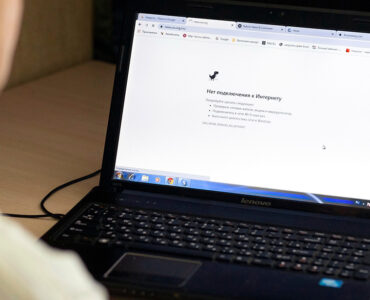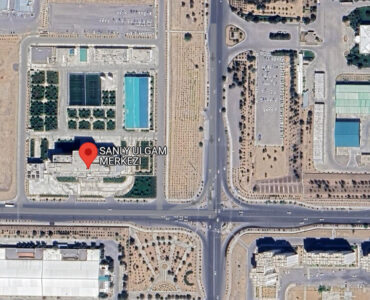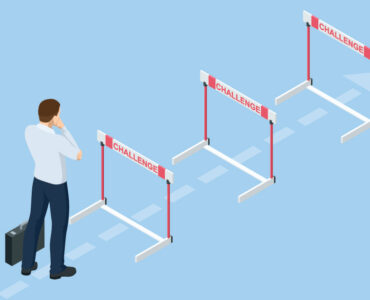The global censorship landscape
Censorship of the Internet and surveillance of online communication is used by authoritarian governments in many parts of the world to limit access to information, quash dissent, and strictly control the people they rule over. The United Nations has recognized the Internet as a key means for people to exercise their universal human rights, and in 2016 passed a non-binding resolution condemning countries that restrict or disrupt citizen’s Internet access. Despite this, Freedom House’s 2022 Freedom on the Net report found that Global Internet freedom declined for the 12th consecutive year. Prior reports showed that this downward trend was largely driven by decreasing Internet freedom across Asia. While Iran, China, and Russia are all well known within Asia for their wide-spread and sophisticated censorship methods, smaller countries and regions with fewer resources and more niche, but equally oppressive, Internet censorship practices, are often overlooked.
Central Asia is an example of an understudied region where states share many appalling Internet censorship practices. There are several reasons for Central Asia being overlooked including – funding for censorship research mainly coming from the US and EU where countries might benefit from trade agreements with these countries and thus unlikely to fund research into the negative consequences of those contracts, there might be limited public pressure to focus on smaller countries that are less known, or because understanding particular censorship practices in each country is a complex and time intensive endeavour. Nevertheless, all Central Asian countries have been found to heavily censor, surveil, and manipulate social media, in order to silence critics and dissenting voices of the region’s governments. Earlier this year, Tajikistan cut the Internet entirely for 13 days in the city of Khorog in response to protests.
The state of Turkmennet
Turkmenistan scored third worst in the world in 2023 in terms of political rights and civil liberties according to Freedom House’s Freedom in the world 2023 report. The Turkmen Internet is severely limited and restricted, seemingly without concern for the impacts on the Turkmen economy or societal development. The Turkmen government also seems to be unmoved by condemnation from the international community, refusing to acknowledge or respond to criticism. Turkmenistan’s government has also employed bizarre practices to enforce this assault on the internet, including requiring wifi users to swear on the Quran that they will not use VPN services and having students pledge to make use of the internet only for “educational purposes.” Needless to say, the government does not utilize social media themselves to communicate to the public.
The lack of attention and support for underserved regions such as Turkmenistan, further deepens the crisis imposed by Internet censorship, leaving people cut off from the rest of the world with few effective circumvention techniques and no one to sound the alarm.
Turkmentelecom has been the sole telecommunication provider in Turkmenistan since all competitors were expelled from the country in 2017. Altyn Asyr, launched in 2004 by former president, Saparmurat Niyazov, is a subsidiary of Tekmentelecom and has a monopoly on the mobile Internet network in Turkmenistan. Berdimuhamedov transformed Altyn Asyr into a joint-stock company with private shareholders in 2012, then in 2019 quietly installed Shyhmyrat Shaharliyev (nephew-in-law to President Berdimuhamedov) as its director. This follows a trend in Turkmenistan of lucrative contracts and positions being awarded, often discreetly, to family members and those close to Berdimuhamedov.
While a single company or government controlling the Internet is not always a detriment to Internet freedom (see Denmark, as an example), there are several benefits to a would-be censor, of having a monopoly over all telecommunications. With control of the Internet in Turkmenistan so close to the country’s leadership, it is much easier to uniformly control access, and prices. And indeed, Turkmenistan has notoriously slow Internet speeds for the exorbitant price of Internet access. It is not a surprise then, that digital literacy in Turkmenistan is low and the Internet is not well integrated into daily life. Though the rate has increased compared to previous years, as of 2023, Turkmenistan’s Internet penetration rate was only 38.2%.
Impacts of the Internet shutdowns in Turkmenistan
Turkmenistan was among the top 10 countries whose economies suffered from Internet shutdowns in 2022, based on Top10VPN’s annual report. According to the report, the shutdowns have affected over 2 million users and cost Turkmenistan’s economy an estimated $29 million.
Donate to support Turkmen analysts, researchers and writers to produce factual, constructive and progressive content in their efforts to educate the public of Turkmenistan.
SUPPORT OUR WORKHaving such limited Internet access has countless follow-on effects for the population of Turkmenistan. As an example, throughout the WHO declared COVID-19 public health emergency, Turkmenistan insisted that there were no confirmed COVID cases in the country, censoring all information about the circulating virus and even arresting people for discussing the pandemic or wearing masks. It is impossible to accurately assess the true toll of the pandemic in Turkmenistan, which has had untold impacts on the physical and mental health of the population.
Of course, with the state of the Internet in Turkmenistan, any attempt to move students to online learning would further expose the abysmal state of Turkmenistan’s digitization efforts. Reportedly, only two of Turkmenistan’s higher education institutes offered online learning options for fourth and fifth year students as of October 2020. Sites like Wikipedia, Zoom, and almost all online libraries are blocked. Foreign university and professional development sites are also often blocked to Turkmen citizens.
These restrictions on the Internet clearly have an impact on the ability of citizens to educate themselves, access important health-related information, and develop at pace with the rest of the world, which are all contradictory to the digital transformation agenda and UN Sustainable Development Goals that Turkmenistan has committed to. The blocking of sites like github.com, for example, limit access to millions of open-source software projects, educational resources, and tools that could be used to support Turkmenistan’s digital transformation. With few economic opportunities, increased financial hardships, and lack of personal freedoms, people are emigrating from the country at unprecedented rates. Internet shutdowns inhibit any meaningful transformation, progress or growth in Turkmenistan.
Ultimately, the reasons for Turkmenistan’s extremely repressive Internet restrictions are unclear. Studies and investigations into censorship methods employed in Turkmenistan suggest amateurish techniques that are unconcerned with the harms done to the Turkmen people or entities operating within Turkmenistan who would benefit from connectivity to the open Internet. With such a track record, the Turkmen government’s resolution to create an autonomous digital network for the country that is notably not connected to the Internet, suggests no intention to improve Internet connectivity within the country.
Summary
The Turkmen government has a long history of surveiling the communications of citizens. This has intensified in recent years with draconian censorship of the Internet. The centralization of Turkmenistan’s communications services into Turkmentelecom and its subsidiaries which are directed and overseen by family members of Berdimuhamedov, the Turkmen president, likely facilitated uniform censorship throughout the country. To date, the shutdowns have affected over 2 million users, cost Turkmenistan’s economy an estimated $29 million USD in 2022, and have caused countless societal harms. International criticism of the Turkmen government for their repressive censorship practices has so far not resulted in significant change for citizens of Turkmenistan.
This research has been developed in cooperation with the author who holds a graduate degree with specialization and publications in privacy protection and censorship circumvention technologies. The author is anonymous for security reasons.





